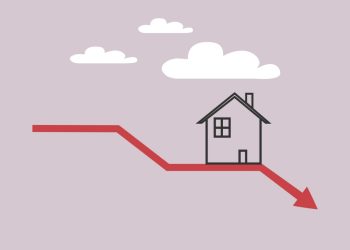The good thing about advertising is that there are many options available out there. For example, when you drive around town, you see other agents on billboards, buses and benches, or they pop up in your Facebook news feed. The point is that those agents have taken steps to ensure they’re always top of mind and easy to get a hold of.
If you’ve ever wondered if you could be winning more leads, or how to plan an effective advertising strategy, our guide to advertising will help. Find out if you need ads and what kind of ads will benefit your business below.
What can ads do?
Ads can help you connect with people you wouldn’t normally have access to. They can cement your position in the community, and attract buyers and sellers. Effective advertising can turn a small, family-owned and -operated business into a household name across the nation.
Advertising is a way to spread your brand and message to a group of people. You can target brand-new people who have never heard of you, or you can target your ads to a specific group of people you already have a connection to. If you have a message you want to share with a group of people, advertising is the best way to do it.
Can you afford to advertise?
You can advertise on your website for free, buy $100 worth of social ads, or spend tens of thousands on an all-out marketing campaign. Advertising can cost as much or as little as you’re willing to invest.
Is it worth it?
Not all ads are created equal, and you may be surprised by what messages resonate with your audience. Before you set up your first ad, figure out what you hope to achieve. Set a clear, measurable, attainable goal. Build your ad strategy around that goal and designate a specific, targeted audience. Once you’ve locked in what you want and who you want it from, you can more easily track the success of your ads so you can replicate that success in future ad campaigns and get the best results from every advertising dollar you spend.
Ad Types
There’s more than one way to advertise your business. Depending on what your specific goal is for your ads and who you audience is, you’ll benefit more from different ad options. Some of the different advertising options are listed below
Digital Ads
Digital ads are shared online. As a general rule, these are some of the easiest ads to target to a specific audience and then track the results you receive. They’re also popular because of the almost instantaneous presence you can create with the click of a button.
Social Media – One of the most popular ad platforms is social media. Most Americans have at least one social media account, and that gives it a broad reach. There are two main ways to advertise through social media: paid ads and organic ads.
- Paid Ads: The targeting capabilities of paid social media ads are phenomenal. You can determine what age, interests or even zip code you want your message to be sent to and most social media sites can accommodate you. This is great for targeting a specific niche or building a geographic farm. Also, by paying for social media ads, you can ensure you receive a certain number of views or engagements, depending on how you set up your ads.
- Organic Ads: You don’t have to spend a fortune to get eyes on your business with organic advertising. When people interact with your social posts, most social sites will reward that engagement by putting your post in front of more people. Organic reach costs nothing, but it’s unpredictable and can be difficult to win.
Remarketing/Retargeting Ads – When you click on a website or a product online and then see ads for that same website or product across the internet, you’re seeing remarketing ads. They’re a really good way to get your name in front of someone who made contact with your brand in some way but didn’t take the next step and fill out your lead form. These can be really effective if you have a special offer, like a free eBook, that you can use to entice possible leads back to your website.
Display/Banner Ads – These are a traditional online advertising format and they are a good way to get your message in front of a lot of eyes fast. They can work especially well when used as part of a remarketing campaign.
Native Advertising – This kind of advertising works because it is relevant to and shows alongside the content someone purposefully sought out. Some of the most familiar native ads are on Google and Facebook. On Google, the first several results usually have a small “Ad” block next to them letting you know someone paid to be there. On Facebook, you’ll see a similar “Sponsored” notification when a post paid to be on your newsfeed. You can even advertise your listings on Homes.com like this with Homes.com City Sponsor ads.
SEO/Website/Owned Ads – Don’t underestimate the value of SEO in your advertising efforts. Though the results are less immediate, once you have traffic coming to your site from Google and other search engines, you can see a big impact on your lead capture. Just make sure you give your website visitors plenty of reasons to contact you by advertising your free guides, CMAs, neighborhood reports, etc., in relevant spots on your website.
Video – For the last few years, video and social media have gone hand in hand, and pairing the two together can create a powerful advertising engine. Try targeting homebuyers on YouTube with local area information. You can also share your video ads on your website. Just remember to be yourself so you can start connecting with your audience on a personal level from the moment they click play.
Email Marketing – The great thing about email marketing is that you usually own your email list. You aren’t dependent on Google ranking you well or the whims of Facebook’s algorithms. You can spread word about your business through email any time you want and have a reasonable assurance that your message has reached your intended audience. Make your email marketing ads even more formidable by building ties with area HOAs. See if they’ll allow you to send out a monthly newsletter on their behalf. Just be sure to include plenty of relevant information in addition to your requests for business.
Listings – When you put a new listing in the MLS, that’s advertising—advertising that your MLS is probably sending to dozens (if not hundreds) of different websites. Treat it as such. Paint a picture telling them why your listing’s features make it a great home. Then, take time to analyze and edit your listing description and make sure it will appeal to buyers.
Out of Home
Ads that someone would see while walking through the park or driving around town are referred to as “out of home” ads. These are great because they boost your brand and make you a normal, trusted part of the community, rather than a risk. However, these kinds of ads aren’t designed to be tracked; they’re more about building your presence and boosting your image than they are for generating leads—which is perfect if that’s part of your strategy.
Sponsorship Ads – If you buy t-shirts for the local soccer league, you can put your name or logo on the back of their t-shirts or on the soccer field fence. Is the local animal shelter printing a calendar? Sponsoring it could earn you a spot in the calendar. Things like that—where you get the privilege of displaying your name after making a donation or contribution—are considered sponsorship ads. They are a great way to reach niches like parents, pet lovers, or whatever other cause you’ve contributed to. They showcase your community involvement and generosity, and are also a great talking point.
Transit Ads – You can get ad space on buses, trains, benches, subways, planes, and virtually any other thing that moves people from one place to another, including your own car. This can be a good way to reach top-of-funnel buyers and busy professionals.
Billboards – Billboards have made some great advancements to survive in the world of online advertising, and now you can share billboard space on a digital billboard or rent one all your own with a traditional billboard. If you do try out billboard advertising, the key is to make your sign entertaining or interesting so that people will talk about it.
Brokerage Signs – You regularly advertise your business and listings through open house signs, for-sale signs, and even the sign sitting in front of your office. However, most real estate signs are of a cookie-cutter variety—there’s nothing to differentiate one office from the other except for the name and colors they use. Come up with some creative talking points; add a funny message to your office sign each week; or certify your Halloween listings ghost-free to make your signs stand out.
Print
Ads that get printed out on paper and sent to your audience are called “print” advertising or marketing.
Direct Mail – Postcards, door hangers and flyers are all forms of direct mail. They can be a great addition to a comprehensive marketing campaign, but don’t usually work well as standalone advertisements. They’re a great way to remind your leads of the value you offer or the features of a home they were interested in. They can also help boost your position within a geographic farm.
Magazines – If all the multimillion-dollar homeowners in the area read Newsweek magazine, it may be worthwhile to put an ad in front of them. If you have a local magazine, that’s even better. The more targeted the subscriber base is, the better control you have to turn a magazine ad to your advantage.
Newspaper – Writing a column or running an ad in the local newspaper can be a fun way to spread your message. If you are running a newspaper ad, be sure to include a clear next step so they know where to find you after they toss their paper into the recycle bin.
TV/Radio
Another popular advertising medium is TV or radio ads. These ads have very limited targeting capabilities, but are great for casting a wide net. These work great when paired with a sponsorship ad of some kind, because then you can share the cost of advertising with the company or charity that is running the ad.
With all the different advertising options out there, it can be hard knowing where to start. Homes.com attracts people who are actively searching for homes. We can help you connect with buyers in your zip code with Homes.com Local Connect. Find out if your area is available.
 Joe Sesso is an author and national speaker for Homes.com. For more information, please visit marketing.homes.com.
Joe Sesso is an author and national speaker for Homes.com. For more information, please visit marketing.homes.com.












Great explanations and info!